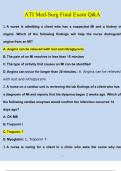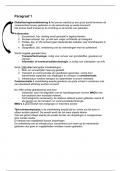Exam (elaborations)
ORGANIZATIONAL BEHAVIOR MANAGING PEOPLE AND ORGANIZATIONS 12TH EDITION By RICKY W - Test Bank
- Institution
- ORGANIZATIONAL BEHAVIOR - TEST BANK
True / False 1. Organizational behavior is the study of human behavior in organizational settings, the interface between human behavior and the organization, and the organizational itself. a. True b. False ANSWER: True 2. Even though humans behave in organizations, such conduct o...
[Show more]





